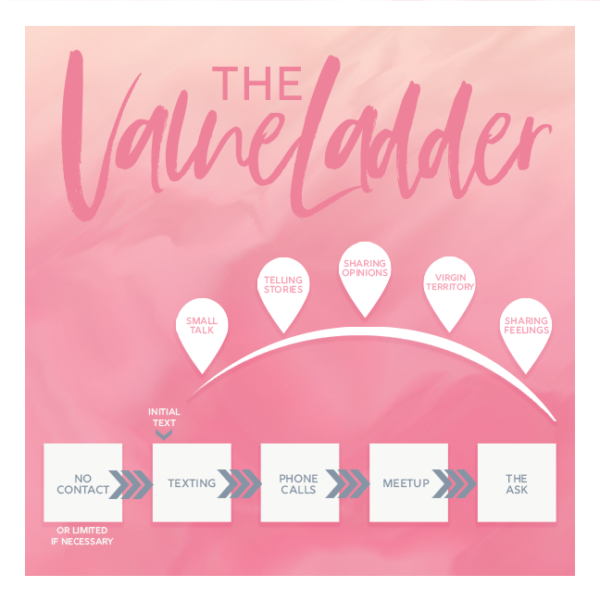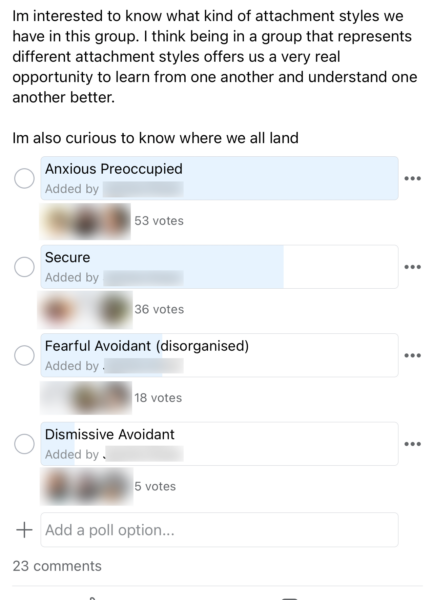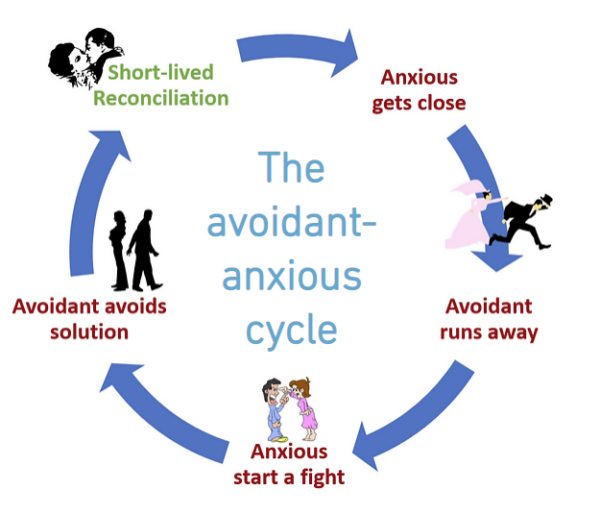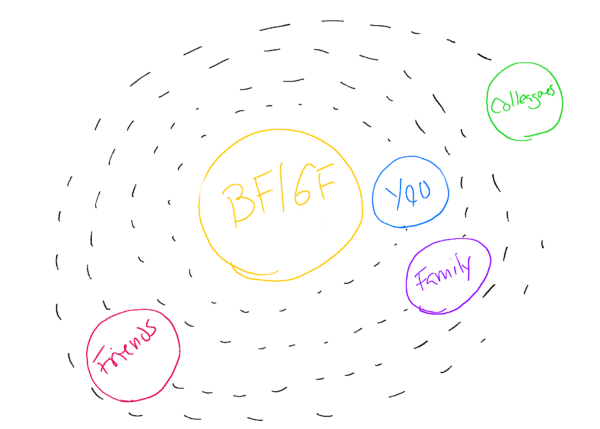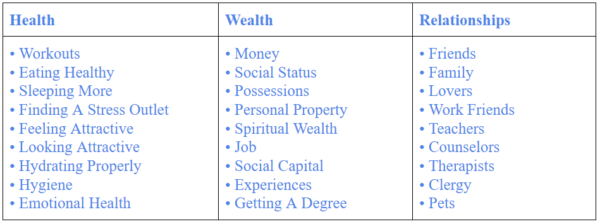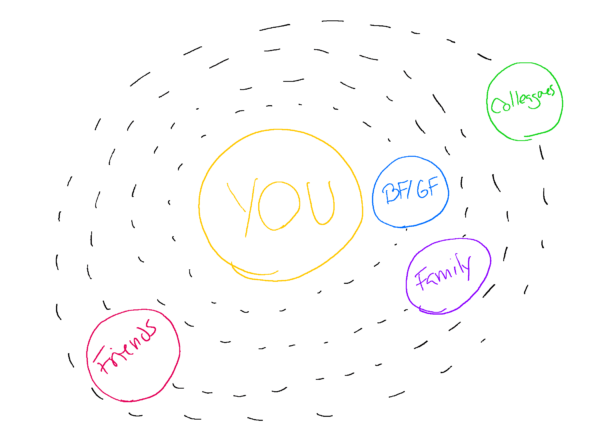This is part two (in a two part series) I’m doing on handling getting dumped.
In this article I’m going to break down what NOT to do when you get dumped.
In all, there are ten major pitfalls I believe you need to avoid,
- Don’t Go Through The Breakup Without A Plan
- Don’t Beg For Your Ex Back
- Not Having An Exact Plan With Social Media
- Don’t Write Your Ex An Apology Letter
- Don’t Sleep With Your Ex
- Don’t Blame Yourself Entirely
- Don’t Allow Your Trinity To Spiral
- Don’t Forget To Do A No Contact Rule
- Don’t Place Your Ex On A Pedestal
- Don’t Forget The Point Is To Outgrow Your Ex
Let’s break em down!

What Are Your Chances of Getting Your Ex Boyfriend Back?
Take the quizMistake #1: Don’t Go Through The Breakup Without A Plan
Don’t navigate a breakup without a plan.
This may seem obvious, but for many, it’s not. Those reeling from a breakup often live from moment to moment, making repeated mistakes.
So, what plan should you follow?
Well, probably this one is the most comprehensive you’ll find online (for free at least.)
- It’s an extensive 20,000-word guide detailing the ex recovery approach to getting exes back
- Explaining why we believe our approach works.
- Covering strategies for moving on from an ex
- Delving into the reasons they are effective.
But if we’re being honest you’re probably not going to read it (not many have the time to.)
So, here’s a graphic that quickly breaks it down,
Basically, the entire guide I linked to above is all about dissecting every single thing pictured in this graphic (in detail) but I digress.
The primary advantage of having a plan is that it provides a semblance of structure in the aftermath of a breakup.
Traditionally, five major stress events are considered the most intense life experiences:
- The death of a loved one
- Relocation
- Enduring a significant illness or injury
- Losing a job
- Experiencing a divorce.
While a breakup might not be equivalent to a divorce, there are enough parallels to make a comparison. Breakups, in general, are incredibly stressful events that require considerable coping skills.
If you don’t have a plan for dealing with a breakup, it’s crucial to develop one.
Mistake #2: Don’t Beg For Your Ex Back
This struggle is all too familiar for many of our clients.
How many times have I stated that our average client typically exhibits an anxious attachment style,
While their ex often will show a tendency toward avoidance,

What Are Your Chances of Getting Your Ex Boyfriend Back?
Take the quizA few hundred times?
(No, seriously I talk about this a lot on this website.)
The interplay between these two styles often results in a cyclical dance of emotions.
Here’s the typical progression:
- An anxious individual and an avoidant person pair up.
- As they grow closer, the avoidant partner, uncomfortable with intimacy, withdraws.
- To regain attention, the anxious partner may complain or initiate a conflict.
- This reaction further discomforts the avoidant partner, provoking irritation and a more significant retreat.
- Consequently, the anxious partner’s insecurities amplify, often triggering what some label as ‘crazy behavior.’
- The avoidant’s craving for space can lead to breakups or prolonged periods of no contact.
- In response, the anxious partner might resort to begging for their ex to return or make unwilling compromises to mend the relationship.
- This acquiescence often prompts a reconciliation, restoring an emotional balance for a while.
- As the two grow close again, the cycle inevitably repeats itself.
Observing this pattern, it becomes evident that the anxious partner’s desperate pleas and sacrifices usually coincide with their attempts to regain their ex’s affection.
However, our philosophy suggests that begging for an ex to return is not the most effective strategy.
Instead, we advocate for personal growth, encouraging the development of a more secure attachment style before attempting to restore a past relationship.
From my perspective, pursuing someone when you’re only destined for failure, or trapped in a cycle of dysfunction, seems futile.
This belief forms one of the key reasons why we discourage begging for an ex to return.
It will either unsettle the avoidant partner due to your anxious energy, or even if successful, it often leads to unnecessary compromises, spiraling you back into the detrimental cycle.
Mistake #3: Not Having An Exact Plan With Social Media
Since establishing Ex Boyfriend Recovery, I’ve observed a curious trend: people frequently block their exes on social media, a move for which I hold mixed feelings.
In essence, two sides emerge in this debate:
- Those who consider it a mistake
- And those who don’t.
Research indicates that up to 90% of exes ‘spy’ on their former partners’ social media accounts post-breakup.
This insight suggests that social media could serve as a potent tool for indirect communication during a no-contact period. I talked about that extensively in this video,
It allows you to show, rather than tell, your ex that you’re moving forward. This display can enhance your attractiveness should you wish to reconcile.
However, the flip side of the coin warrants consideration.
Following a breakup, your cortisol levels — the stress hormone — surge.
Anything that maintains this elevated cortisol can prolong your own distress.
Frequent checks of your ex’s profile can trigger anxiety and keep cortisol levels high, hindering your healing process.
In essence, your approach to social media post-breakup hinges on the balance of pros and cons.

What Are Your Chances of Getting Your Ex Boyfriend Back?
Take the quizIf you believe you possess the discipline to use social media as a strategic tool, showing your ex that you’re moving on can be beneficial. Conversely, if you’re prone to succumbing to anxious tendencies, it might be in your best interest to block your ex on social media.
Mistake #4: Don’t Write Your Ex An Apology Letter
If you’re unsure about my stance on writing letters, I suggest watching this video.
Spoiler: I hate them!
Why?
Simple, I’ve never witnessed it have a positive outcome.
People occasionally feel the need to write apology letters, particularly if they believe they’ve erred. While there might be isolated instances where this is appropriate, I generally believe that if you owe an apology to your ex, it’s vital to choose the right moment for it.
I can’t tell you how often I’ve heard from clients who’ve penned letters to their exes, only to later learn through the grapevine that their ex mocked the contents to mutual friends.
I’ve been right in the middle of this type of situation. One of my best friends from back in the day got a letter from his ex-girlfriend and he proceeded to spend an entire hour making fun of her letter and laughing about her feelings.
That experience has stuck with me and definitely colors how I view apology letters.
But it’s not just my personal experiences that shape my stance.
In my professional capacity, working with clients going through breakups, I’ve never seen an apology letter result in a happy reunion. Getting back together isn’t as simple as saying sorry and expecting everything to be alright again.
Mistake #5: Don’t Sleep With Your Ex
While this may seem obvious, if you need further proof of why this is a bad idea, let me share a story.
A couple of months ago, I had a coaching session with an individual who had essentially won their ex back.
However, they made the mistake of sleeping with their ex before securing a commitment.
As a result, they found themselves stuck in a friends-with-benefits situation, which is a common pitfall I observe when people sleep with their exes.
Often, individuals falsely believe that being intimate again will persuade their ex to commit.
Yet, it seldom does.
And if I’m being totally honest, escaping the friends with benefits zone can be harder than getting out of the friend zone.
Quote me on it!
Mistake #6: Don’t Blame Yourself Entirely
I came across a profound statement from a psychiatrist in Palo Alto, Dr. Sheenie Ambardar.

What Are Your Chances of Getting Your Ex Boyfriend Back?
Take the quizShe argues that breakups can be overwhelmingly devastating for those who are codependent, as their self-identity is often entirely tied to their partner, and how that partner perceives and treats them.
I’ve noticed in my community that our clients often blame themselves for things that aren’t their fault.
For a long time, I was puzzled about why they do this.
It wasn’t until I researched the link between an anxious attachment style and codependency, and discovered that most of our clients have an anxious attachment style, that I understood.
Many of these people are codependent on their exes.
As a result, they blame themselves entirely for issues that aren’t solely their responsibility. Their self-perception and world are completely intertwined with their ex-partner.
It’s critical not to fall into this trap.
Both breakups and relationships involve two people, not just one.
In my experience, even in extreme scenarios, such as when our clients cheat, there’s always an underlying reason for their action.
It usually reflects something the other person did, or didn’t do, that made them feel neglected. I’m not defending infidelity, just using it as an illustration to emphasize that if you think you’re solely to blame for your relationship’s downfall, you need to reassess your perspective.
It’s an unhealthy mindset, and all it accomplishes is escalating your feelings of depression and anxiety.
Mistake #7: Don’t Let Your Trinity Spiral
The Trinity is a concept that I developed in 2013.
It comprises of dividing your life into three categories: health, wealth, and relationships.
Here’s a fun graphic breaking it down further,
I’ve often discussed how these aspects of life are intertwined, and how a negative impact in one area can bleed over into the others.
Conversely, our aim at Ex Boyfriend Recovery is to teach people that the opposite is also true.
By making positive strides in one aspect of the Trinity, the other areas can also improve due to their interconnected nature.
However, during breakups, individuals often allow things to spiral out of control.
Here’s an example:
Let’s say your ex broke up with you.
This is obviously a significant blow to the ‘relationships’ aspect of your Trinity.
(GRAPHIC)
It’s easy to let this negative event and the accompanying emotions impact other areas of your life.
Perhaps you were an avid fitness enthusiast; you loved going to the gym, running, biking, and working out.
But now, you lack the motivation to maintain these activities.
(GRAPHIC)
Ironically, this is when you should be hitting the gym more, doing things to distract yourself.
Yet, you might give in to depression, and as a result, your ‘health’ begins to suffer.
This is the start of a downward spiral.
So far, only ‘health’ and ‘relationships’ have been affected, but soon it may start impacting your work. Your attention dwindles, you become disinterested, your performance drops, and you might even face serious repercussions such as losing your job.
Now, your ‘wealth’ has been negatively impacted too.
(GRAPHIC)
From my observations, this tends to be the primary issue that individuals face after a breakup.
They allow their Trinity to spiral out of control, losing their sense of self. Because many of our clients are codependent, their anchor, their North Star, is gone.
They haven’t learned to create a self-centric universe;
Instead, they’ve built their entire world around their ex. Therefore, I can’t stress enough: don’t let your Trinity spiral.
Mistake #8: Don’t Forget To Do A No Contact
I’ve interviewed hundreds of success stories.
If you’re skeptical, just check out the ‘Success Story’ category on our website or listen to our podcast episodes.
These hour-long interviews cover a range of situations:
- People who easily got their exes back
- People who found the process more challenging
- Even those who managed to win their exes back but realized they didn’t want them anymore.
- There were also individuals who decided to move on instead of getting back with their ex.
You know the one common thread among all these success stories? They all attempted some form of the ‘No Contact’ rule. Every single one of them.
That’s not to say that everyone successfully completed the ‘No Contact’ period without a hiccup.
Many broke it early.
Most of them violated the rule more than once.
A few were able to maintain it entirely.
Sometimes it didn’t work, but the importance of the ‘No Contact’ rule can’t be overlooked.
A common mistake people make with this rule is they use it with the intention of getting their ex back when it should be about themselves.
It shouldn’t be used as a tactic to coax your ex into returning, rather, it should be seen as a strategy for self-improvement.
It’s about taking a pause and focusing your energy on stabilizing your Trinity that may be spiraling out of control. Also, this rule serves a crucial role in avoiding our next big mistake, which is placing your ex on a pedestal.
Mistake #9: Don’t Put Your Ex On A Pedestal
This is something that often occurs with codependence.
I refer to it as the ‘pedestal effect’.
The concept is fairly simple and you can learn about it in this video,
Essentially, my argument is that everyone tends to put certain relationships or partners on a pedestal.
It’s akin to thinking, ‘Wow, if I ever got into a relationship with this person, my life would be amazing, but it could never happen.’
It’s the dream scenario.
So, you elevate an individual, putting them on a pedestal.
Generally, we’re drawn to people who we perceive as being on the same level or higher than us on this metaphorical pedestal. We rarely desire a relationship with someone we consider ‘below’ us on the pedestal.
At some point during a relationship with your ex, you likely saw each other as equals.
However, as the relationship evolved, your ex gradually moved higher on your pedestal, leading to an imbalance.
While they were ascending on your pedestal, you were descending on theirs. This is often when codependent tendencies kick in.
The mistake lies in keeping your ex on that pedestal after the breakup.
Not only does this prevent you from getting them back, but it also perpetuates a belief that they were the best partner you could ever have. Usually, this isn’t the case.
Often, you can find someone better.
As cliché as it sounds, there are plenty of other fish in the sea. This perspective isn’t negative, especially when it comes to realizing your own worth.
Mistake #10: Don’t Forget To Outgrow Your Ex
The final point is, don’t forget to outgrow your ex.
Essentially, that’s the crux of the ex-recovery process, at least the way I teach it.
We’ve observed that our success stories typically employ a no-contact rule, using this period to outgrow their exes.
What does it mean to outgrow your ex?
It doesn’t necessarily mean that you no longer want them back. Instead, it refers to building the confidence to be okay with the possibility of not reconciling, of ending up alone because you trust that you’ll eventually find someone else. It’s about having faith that things will work out for you.
Adopting this eternally optimistic approach is crucial, even though it can be challenging to grasp for someone currently in a state of deep disappointment or depression.
Yet, reaching this emotional stage is often when ex-partners begin to gravitate back.
